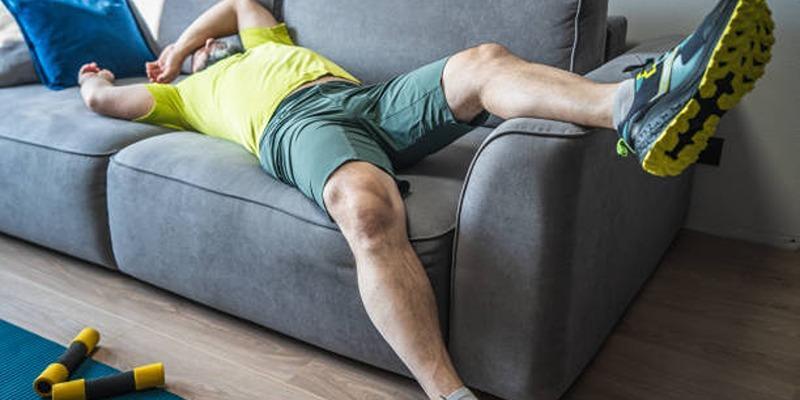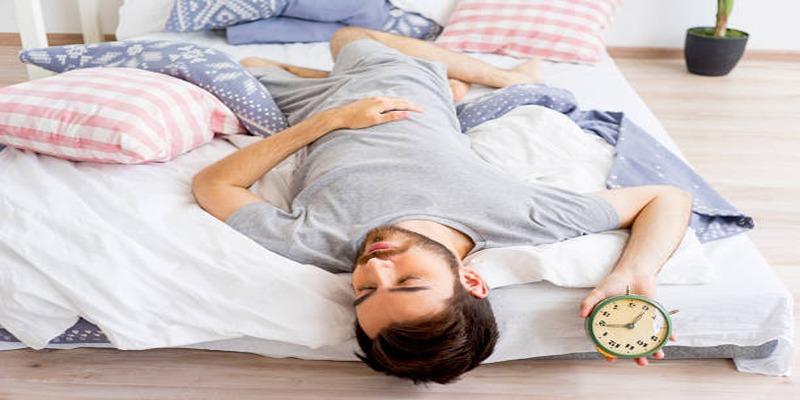It is normal to be tired after a hard up workout. Can an after-exercise nap be beneficial or disadvantageous? In this article, you are going to learn whether the post-workout naps influence recovery, energy and success of training, so that you can take a decision whether to rest or not to rest.
Why You Feel Sleepy After a Workout
 Feeling sleepy after a workout is a common experience for many people. This post-exercise fatigue can be attributed to several factors, including energy expenditure, hormonal changes, and your body’s natural recovery processes.
Feeling sleepy after a workout is a common experience for many people. This post-exercise fatigue can be attributed to several factors, including energy expenditure, hormonal changes, and your body’s natural recovery processes.
Your Body Just Worked Hard
When you exercise, your muscles use up a lot of energy. Your heart pumps faster, your breathing increases, and your body temperature rises. Afterward, your body wants to rest and rebuild. This natural fatigue can trigger a strong urge to nap.
Hormonal Shifts
Exercise causes your brain to release hormones like endorphins and serotonin. These chemicals can boost your mood during a workout but may make you feel sleepy later. Physical effort also lowers your stress hormone cortisol, which may further enhance the need for rest.
Benefits of Napping After a Workout
Napping after a workout can be a powerful way to aid recovery and improve overall performance. It allows your body to repair muscle tissue and replenish energy stores, preparing you for future physical activity.
Helps with Muscle Recovery
Sleep supports muscle repair. During deep sleep, your body releases growth hormones that help rebuild tissues. Even a short nap can kickstart this repair process, especially if your workout was heavy on weightlifting or cardio.
Boosts Mental Alertness
If your workout left you mentally tired, a 20–30-minute nap can refresh your brain. It improves focus, alertness, and memory—making you more productive for the rest of the day.
Reduces Fatigue
Sometimes a workout drains your body so much that you feel tired for hours. A post-exercise nap helps reduce this fatigue and gives your body a chance to recover faster, especially if you didn’t get enough sleep the night before.
When Is the Best Time to Nap After Working Out?
Napping after a workout can be highly beneficial, but timing is key to maximizing its advantages. The best time to nap depends on your schedule, the intensity of your workout, and your body’s needs.
Wait a Bit Before Lying Down
Experts suggest giving your body some time to cool down before sleeping. Ideally, wait 30–60 minutes after your workout to let your heart rate return to normal. Drink water, take a light snack, and allow your body to come back to rest.
Afternoon Is Ideal
Napping in the late morning or early afternoon is best. If you nap too late in the day, it might affect your night-time sleep. A short nap between 1 PM and 3 PM usually fits well into most routines and doesn’t disturb your night schedule.
How Long Should a Post-Workout Nap Be?
A post-workout nap doesn’t need to be long to be effective. The ideal duration can depend on your personal schedule and energy needs.
The Power Nap: 20–30 Minutes
If you want to recharge without feeling groggy, aim for a power nap of 20 to 30 minutes. This short nap is enough to boost energy and mental clarity without entering deep sleep, which can be harder to wake up from.
Recovery Nap: 60–90 Minutes
If your workout was particularly intense or if you’re making up for lost sleep, a 60 to 90-minute nap can help. This allows you to go through a full sleep cycle, promoting muscle healing and energy restoration.
Things to Do Before Napping After Exercise
To maximize the benefits of napping after exercise, it’s important to prepare your body and environment properly. Following a few simple steps can ensure your nap is both restorative and effective.
Hydrate First
Always drink water after a workout. Your body loses fluids through sweat, and dehydration can lead to headaches and tiredness. Hydrating before your nap ensures better recovery.
Eat a Light Meal or Snack
Eating a small meal rich in protein and healthy carbs helps repair muscles. A banana with peanut butter or a boiled egg with toast can refuel your body. Avoid heavy meals that might interfere with your nap.
Cool Down Properly
Take a few minutes to stretch and slow your breathing before lying down. This helps prevent stiffness and promotes blood circulation. If you’re sweaty, take a quick shower to feel more comfortable during your nap.
When You Should Avoid Napping After a Workout
While napping after a workout can be beneficial, there are times when it may do more harm than good. It’s important to recognize these situations to avoid disrupting your recovery and overall energy levels.
If You Have Trouble Sleeping at Night
Struggling to fall asleep at bedtime? Taking long daytime naps could be the culprit. Naps longer than 20-30 minutes can disrupt your natural sleep cycle, making it harder to unwind at night. Instead of napping, try relaxing activities like reading, journaling, or light stretching to help you wind down without affecting your sleep routine.
If You Feel Dizzy or Unwell
Feeling tired might not always be from lack of sleep—it could be due to low blood sugar, dehydration, or overheating, especially after exercise. Napping won’t solve these issues. Focus on your basic needs first: eat a healthy snack, drink water, and cool down. You’ll likely feel better without needing to nap.
Alternatives to Napping After Exercise
 Post-exercise recovery doesn’t always require a nap. There are plenty of quick, effective ways to rejuvenate your body and mind without disrupting your day.
Post-exercise recovery doesn’t always require a nap. There are plenty of quick, effective ways to rejuvenate your body and mind without disrupting your day.
Light Meditation
Feeling drained but short on time? Spend 10-15 minutes meditating or doing guided breathing exercises. Meditation helps your body relax while calming your mind, offering rest without falling asleep. A short mindfulness session can boost focus and improve your mood.
Gentle Yoga or Stretching
Stretching or gentle yoga after a workout helps cool down muscles, improves blood flow, and eases tension—all while relaxing your body. This reduces tiredness and the urge to nap while supporting flexibility and recovery.
Listening to Calm Music
Sometimes, mental rest is all you need. Listening to calm music, nature sounds, or relaxation tracks can help you recharge without needing a full nap. A playlist of relaxing tunes can ease stress and help you stay alert for the rest of your day.
Conclusion
So, should you nap right after your workout? Yes, but only if done right. A well-timed, short nap can improve recovery, reduce fatigue, and increase mental focus. However, if you nap too soon, too long, or too late in the day, it might affect your sleep quality at night. The key is to listen to your body. If you’re truly tired and your schedule allows, a nap of 20–30 minutes after your workout can be very helpful. But remember to hydrate, eat something light, and give yourself a little time to cool down before heading to bed.












